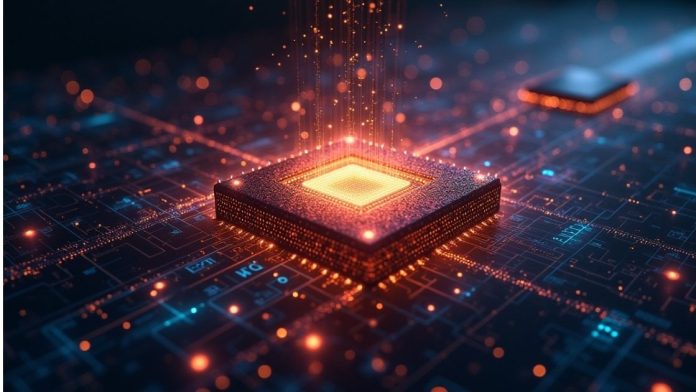Astrophysics is entering a transformative era. With the universe growing ever more complex in the eyes of researchers, traditional computing systems are struggling to keep up. Enter quantum computing, a technological leap that promises to unlock new frontiers in our understanding of the cosmos. This article explores how quantum computing is shaping the future of astrophysics, what challenges it addresses, and what breakthroughs lie ahead.
What is Quantum Computing?
Before diving into its astrophysical applications, it’s important to understand what makes quantum computing so powerful.
Unlike classical computers that use bits (0 or 1), quantum computers use quantum bits (qubits), which can exist in multiple states simultaneously thanks to superposition and entanglement. This allows quantum computers to process and analyze complex datasets exponentially faster than classical systems. An essential capability for the data-intensive field of astrophysics.
Why Astrophysics Needs Quantum Computing
1. Massive and Complex Datasets
Modern telescopes like the James Webb Space Telescope and large sky surveys produce petabytes of data. Analyzing this massive information—identifying patterns, simulating phenomena, and extracting meaningful insights is increasingly beyond the capability of even the most advanced supercomputers.
Quantum algorithms, such as quantum Fourier transforms and Grover’s search, offer speed and efficiency gains that are game-changing for this type of analysis.
2. Modeling Cosmic Phenomena
Understanding phenomena like black hole dynamics, dark matter, quantum gravity, and the Big Bang requires solving equations so complex that classical computers hit a wall.
Quantum computing allows for simulating quantum systems naturally, making it ideal for astrophysical models that involve quantum mechanics. This could help answer fundamental questions about the nature of spacetime and the evolution of the universe.
3. Optimization Problems in Telescope Scheduling
Scheduling observatories or satellites to maximize observation time and scientific output involves complex optimization problems. Quantum algorithms can help achieve more efficient solutions, ensuring better resource use across global astrophysical research projects.
Key Applications of Quantum Computing in Astrophysics
➤ Quantum Simulations of Early Universe Conditions
Simulating the conditions just after the Big Bang involves quantum field theories and high-energy physics. Quantum computers can run more accurate simulations of these early-universe conditions, helping scientists understand matter formation and cosmic inflation.
➤ Enhancing Gravitational Wave Detection
Gravitational wave data analysis requires detecting incredibly faint signals buried in noise. Quantum machine learning algorithms can improve the signal-to-noise ratio and make real-time detection more accurate, boosting discoveries in multi-messenger astronomy.
➤ Mapping Dark Matter and Dark Energy
Dark matter and dark energy make up over 95% of the universe, yet remain mysterious. Quantum-enhanced algorithms can reveal hidden patterns in cosmic microwave background radiation and large-scale structure surveys, aiding in their identification and behavior modeling.
Challenges with Quantum Computing in Astrophysics
While the promise is enormous, there are hurdles:
- Hardware Limitations: Current quantum computers are still in the noisy intermediate-scale quantum (NISQ) era. They lack stability and qubit coherence for long computations.
- Algorithm Development: Few quantum algorithms are currently well-suited for astrophysics-specific tasks. Research is ongoing to tailor algorithms for real-world cosmic problems.
- Integration with Classical Systems: Hybrid systems combining classical and quantum computing are still in early development and require better frameworks for practical use.
Despite these challenges, progress is rapid. Institutions like NASA, Google, IBM, and CERN are already investing in quantum-astrophysics research.
The Future of Quantum Astrophysics
In the coming decades, quantum computing could be the key to solving the universe’s deepest mysteries, from the true nature of black holes to unraveling the fate of the cosmos. As quantum technology matures, it will shift astrophysics from observation-driven to simulation-driven, enabling predictive models of the universe on an unprecedented scale.
We are witnessing the birth of a new scientific paradigm with quantum astrophysics where computation becomes not just a tool but a telescope in its own right.
Final Thoughts
Quantum computing isn’t just the future of computing, it’s the future of understanding the universe. For astrophysicists, it’s a new lens through which the cosmos can be observed, modeled, and understood. As this technology continues to evolve, so too will our grasp of the stars, galaxies, and the mysteries that lie beyond.

